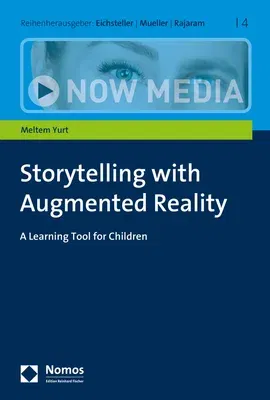Meltem Yurt
(Author)Storytelling with Augmented Reality: A Learning Tool for ChildrenPaperback, 21 August 2019

Qty
1
Turbo
Ships in 2 - 3 days
In Stock
Free Delivery
Cash on Delivery
15 Days
Free Returns
Secure Checkout

Part of Series
Now Media
Print Length
109 pages
Language
English
Publisher
Nomos Verlagsgesellschaft
Date Published
21 Aug 2019
ISBN-10
3848757745
ISBN-13
9783848757749
Description
Product Details
Author:
Book Format:
Paperback
Country of Origin:
US
Date Published:
21 August 2019
ISBN-10:
3848757745
ISBN-13:
9783848757749
Language:
English
Location:
Baden-Baden
Pages:
109
Publisher:
Series: